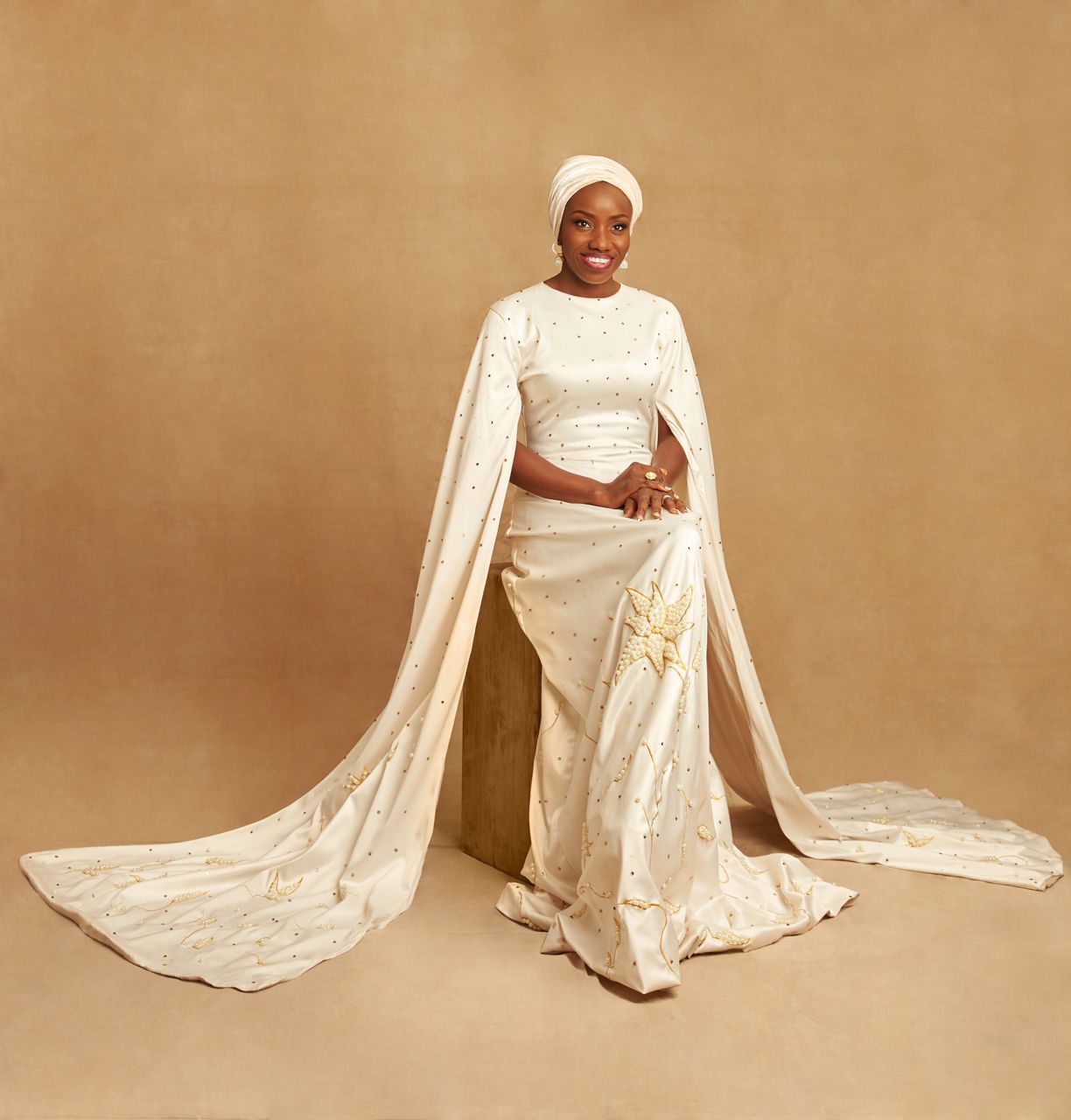“Well, I didn’t plan to start a bakery at all,” says Omowumi Monehin, the founder of Wumi’s Bakery and Bistro, nestled in the heart of Doha, Qatar.
Though baking wasn’t a lifelong dream for her, fate, as it often does, had a different plan. It all started with the frequent job relocations for her husband, Akin, which meant a life constantly on the move. Then, in late 2015, their journey landed them in Qatar- This unexpected turn, however, would later awaken a passion within Wumi that, unknown to her, captured the hearts and stomachs of the nation of Qatar.

Two years after moving to Qatar from Nigeria, on June 5, 2017, Saudi Arabia, the United Arab Emirates (UAE), Egypt, and Bahrain broke off their relationship and severed diplomatic ties with Qatar. The quartet also imposed a land, maritime, and airspace blockade on Qatar and restrictions on the travel of their nationals to Qatar and Qatari nationals to their countries. With this political rift in the Middle East, Wumi says she was exposed to the country’s dependence on imported goods, including bread, a staple food for Wumi’s family.
“It was a siege, just like the Bible,” Wumi recalled. “That was when I realised that almost everything sold in Qatar was imported, including bread! The shelves became empty owing to panic buying in two days and in less than a week, Qatar was importing bread and other grocery and dairy products from the UK – Tesco and Sainsburys. However, they are now self-sufficient since the blockade, upgrading many products, including Wumi’s bread as a National Product of Qatar.”
While the government encouraged local bakeries to increase production, most bakers laden their bread with chemicals, preservatives, and substitutes. Wumi says that upon seeing this, her maternal instincts took over; when her older son, a finicky eater whose go-to meal is bread, began to experience health problems as a result of a lack of nourishing options.
“I started watching YouTube videos on ‘How to make healthy bread from home’.” She shares, “I watched everything and anything on bread making. I self-trained. I am sure there is no video on the subject that I didn’t watch at that time, as I watched hundreds and hundreds of videos over and over again.”
Wumi’s Bakery And Bistro: The Agege Bread Empire
What started out as a mother’s earnest love to provide her family with healthful and nourishing food from her home kitchen soon grew into a blossoming mega kitchen that has captured the hearts and palates of thousands of people across the country.
Wumi reflects on her humble journey, sharing, “It started with neighbours offering money for the bread, as I was giving them for free since everyone needed quality bread. I think they started feeling guilty and offered me money for my effort. Then parents from my children’s class would ask about the bread they bring to school—you know, children check each other’s lunchboxes out! They offered me money for the bread. That was when I realised, ‘Wait a minute, folks are actually willing to pay for this’.”
She continued that this realisation was a turning point, especially with her frustration with the lack of good bread options in Qatar. “I believe there are more people like me out there—people who value quality and are interested in the ingredients of what they put into their stomachs,” she explains. ”
That was when the vision of Wumi’s Bakery and Bistro was born.
Now, Wumi’s Bakery and Bistro, a major supplier of handmade Agege bread in Qatar, despite it being a Nigerian local staple food, has quickly garnered a diverse clientele, with less than 10 per cent of customers being Nigerian. “Other Africans, Americans/Canadians, South Americans, Europeans, Arabs, Asians, and of course, Qataris,” Wumi proudly states. “It is amazing how non-Nigerians have embraced a product with origins from Nigeria. I am most proud.”
Talking about the marketing strategies she used, Wumi revealed that while she focuses on operational excellence, her husband, Akin, plays a crucial role in the business’s commercial transformation but they both realised the power of brand awareness with the leverage of storytelling.
Yet, amid the bakery’s rapid growth, Wumi remains grounded in her dedication to customer satisfaction. “Our growth has always been organic, as I never paid for shelf space, any advertisements to promote the bread,” she reveals. “I simply focus on satisfying one customer at a time. As they get satisfied, they say, ‘You’re so good at this; I am sure you will be able to do that’ … ‘Your product is popular with this hypermarket chain, I think you should improve in this and that area, then add this chain to your network.”
Today, Wumi’s Bakery and Bistro, which originated in a humble kitchen, has evolved into a culinary sensation that delights the taste buds of countless Qatari and expatriate families, earning its status as a sought-after destination.
With a commitment to using the finest quality ingredients, it has garnered a reputation for excellence in catering services, delivering impeccable service, and ensuring unparalleled customer satisfaction. The bakery has also secured over $2 million in funding within the past two years and have ISO 22000 and HACCP certifications.
Operating under the esteemed Doha Bistro Group, Wumi’s Bakery and Bistro encompasses three distinct brands: Wumi’s Bakery, Wumi’s Bistro, and Lutong Bahay by Wumi. Each brand caters to specific culinary preferences, offering a diverse array of products tailored to suit every palate. “Wumi’s Bakery encompasses both the classic bakery and the Asian bakery,” explains Wumi. “Wumi’s Bistro serves as a cloud kitchen specialising in Nigerian cuisine, while Lutong Bahay by Wumi caters to the culinary preferences of our Asian clientele.”
Celebrating 9ja Heritage, Embracing Qatar
“Qatar is a melting pot of cultures, and that is reflected in the cuisine,” Wumi tells Guardian Life, explaining how she tailored her recipes to appeal to the Qatari market while preserving her heritage.
“My recipes are authentic and 100% per cent Nigerian… Qataris in particular are very warm people and open to exploring and trying new things. That has made it extremely easy for me to be true to my roots.”
“We have been receiving lots of Nigerians who are on holiday in Qatar or stopping over for a few days. They usually patronise our Hot Kitchen (Nigerian food), and the feedback I get from them is consistent; the flavours of our food are authentic.”
However, Wumi doesn’t stop at merely serving delicious food; instead, she uses her products as a conduit to connect with customers and showcase Nigeria’s richness. “I am unapologetic about the origin of my products,” she affirms. “I ‘sell’ Nigeria through my products.”
One such example is the launch of ‘Aba Bread’, a product named after the resilient city of Abia State in Nigeria. “After the 2022 World Cup, we decided to launch a more affordable product. We named it Aba Bread and at the launch, we drew a parallel between Aba and Qatar – resilient places.
We told a story about the packaging of the product. Qatar survived the blockade against all odds. They hosted the World Cup against all odds. Aba, though challenged in so many ways, is one of the leading cities in Nigeria with respect to entrepreneurship, manufacturing and trading. Just last month, we learned of the exploits of their independent power plant and how several places now have 24-hour electricity in Abia State.”
The response, however, from her customers has been overwhelmingly positive, with many Qataris eager to learn more about Aba and its rich history. “I keep telling them the story of this challenged city in Nigeria that is making us proud,” Wumi says with pride. “So, it’s not just Agege Bread, but also Aba Bread. I am trying my best to push a positive narrative of Nigeria.”
The Resilience Of Wumi’s Bakery and Bistro In Qatar
Navigating the challenges of establishing a business in a foreign land was no easy feat for Wumi. “You know, when you are grinding daily, you never know how much progress you have made. Qatar has one of the highest per capita income in the world,” she explains, noting the staggering wage rates. “That meant that I did as many things as possible myself. I would be in the bakery for 18 hours every day. My husband, Business Transformation Manager at Shell, applies his expertise to transform my business and I am grateful for his experience. He was also our first sales representative, as he would collapse the seats of our 4×4 in the evenings and weekends to supply bread to the few outlets we had then. Now we have 15 sales representatives. Those were really challenging times.”
The retail market presented its own set of challenges, with dominance by a particular group from Asia. “I had no female ally to lean on,” Wumi recalls. “Being dark-skinned … African… and Nigerian. While many of them are liberal, there is a lot more struggle as there is a culture challenge, interacting with a woman who would probably challenge them and push back when things don’t make sense.”
Undeterred by these cultural barriers and scepticism, she says she and her husband forged ahead, adopting a pull strategy to penetrate the market and ensure the continued success of her bakery.
“It was a lot,” she admits. “But the pull strategy we adopted helped us penetrate the market. It made our growth organic. I never lost sleep for once, despite several doors that were slammed at me. I mean several doors as we tried to scale and spread our products across the country. If I think about it, I will be depressed.”
Her words: “We started with Agege Bread, but now we are everywhere in Qatar, including the national petrol station, Woqod.”
She proudly declares: “With over 400 locations across the country, I have well over 100 SKUs. Baked products should be about 60. Nigerian food is another 30 and Asian food another 20 and we keep adding as customers demand.”
Reflecting on her achievements, Wumi expresses profound pride in the growth of her business. “I feel proud that people who do not know me see products on the shelves but they select one with my name on it,” she says. “I feel very proud when I interact with customers and they tell me their children say it’s either Wumi’s or nothing. That gives me goosebumps every time I hear that. I feel proud that our products are stocked across hypermarkets, supermarkets and corner shops across Qatar. My name is right on the product. I feel proud that I have been able to establish a product that’s a household name in a foreign country.”
When asked about her advice to aspiring entrepreneurs, especially migrant women, Wumi noted the importance of solving societal problems, investing in oneself, and mastering the craft.
“Successful businesses are those that connect to human needs and wants,” she advises. “Know your craft and invest in yourself so you can become competent in your area of interest and the best possible version of yourself on that subject matter. Thirdly, get your numbers right. Be sure of the cost build-up and be clear on the unit cost of production.”
This was first published in the Guardian newspaper (online).








